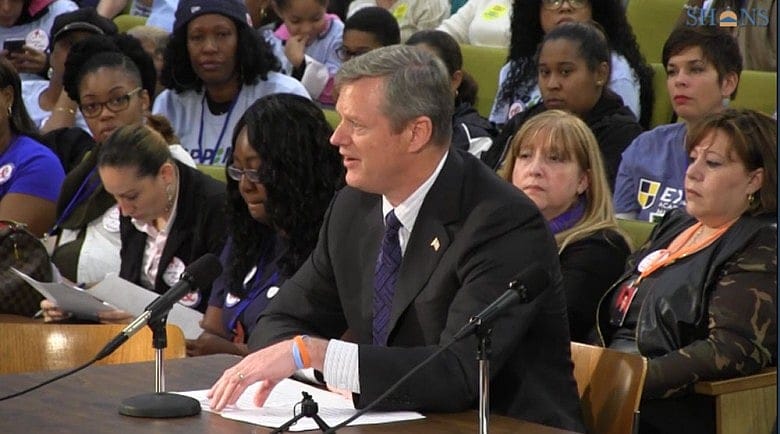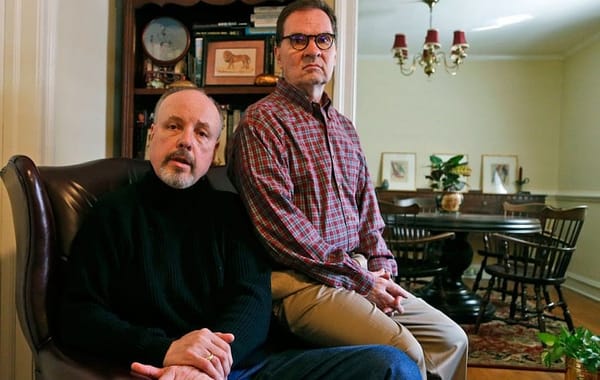Lawmakers pitched from both sides of charter school debate

STATE HOUSE — Charter schools and public school districts were separately hailed Tuesday as the best method of educating disadvantaged or struggling students as lawmakers listened to testimony calling for either an increase or halt in charter school growth.
Gov. Charlie Baker was among the hundreds who packed an Education Committee hearing to speak or show support, testifying on a bill he filed (H 3804) that would allow the addition of up to 12 new charter schools or expansions annually above existing caps, focusing on low-performing districts. The cap proposal, Baker said, is intended to increase the educational opportunities available to all students.

